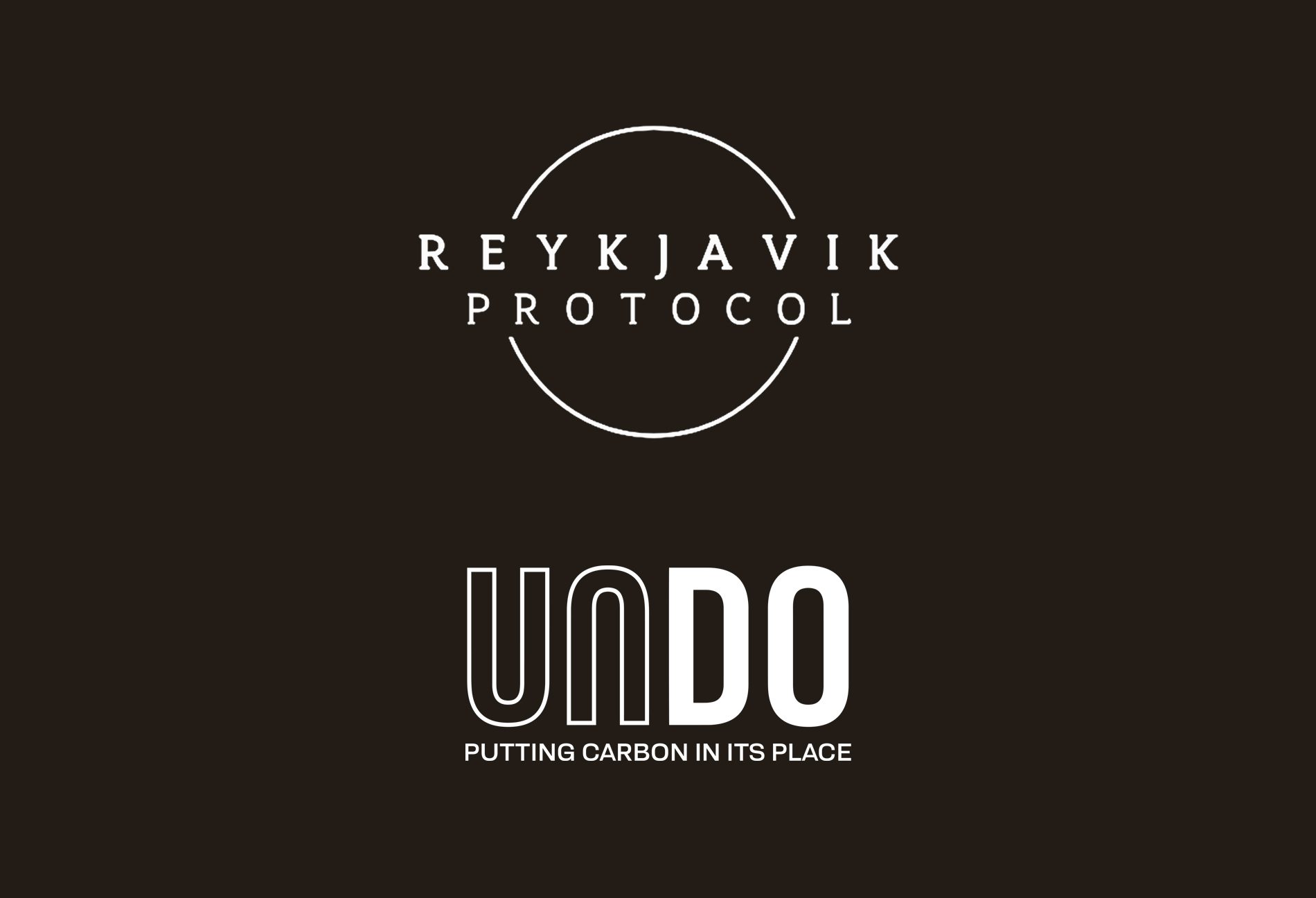Due to a lack of established standards and relevant risks for buyers, environmental carbon credits and the nature-deployed solutions that generate them face barriers to scaling.
In a step towards addressing these risks, UNDO collaborated with fellow nature-deployed environmental credit suppliers, who are primarily operating in the carbon removal space, to announce a commitment to the Reykjavik Protocol.
With UNDO as one of the founding signatories, the Reykjavik Protocol is a set of principles that governs how suppliers who work with nature should responsibly bring their carbon solutions to carbon credit markets.
Carbon dioxide removal (CDR) plays a pivotal role in addressing the urgent global challenge of climate change. The Intergovernmental Panel on Climate Change (IPCC) has underscored the critical need for carbon removal by 2050 to limit global warming to manageable levels. Carbon removal technologies and practices involve capturing and removing carbon dioxide from the atmosphere. They provide a crucial tool in achieving net-zero emissions and safeguarding the planet’s future, offering hope for mitigating the most severe consequences of climate change.
This summit is the first time carbon removal credit suppliers of this type have convened to specifically address risks that represent barriers to scale for the industry.
Nature-deployed approaches like UNDO’s enhanced rock weathering solution utilise natural processes to remove carbon dioxide, protect critical ecosystems, increase biodiversity, and provide security for our food systems. These types of solutions represent some of the most scalable, permanent and cost-effective climate solutions available today.
What Are The Goals Of The Reykjavik Protocol?
By creating a uniform set of principles, the co-authors of the Protocol aim to increase buyer trust and address the perceived risks of the environmental credits that they and their direct competitors sell on the Voluntary Carbon Market. As a result, this should instil more confidence and further accelerate the growth of the market.

“Environmental credits are a critically important tool to fund the work of restoring the climate and ecosystem. The Reykjavik Protocol shows the commitment of credit producers, measurement companies, and research organisations to establishing science-based, trust-worthy, and effective best practices as standard for the industry.”
Marty Odlin, CEO of Running Tide and fellow co-author of the Protocol
The 12 Core Principles of the Reykjavik Protocol
In total, 12 initial principles were agreed upon. All suppliers that sign on to the Reykjavik Protocol commit to implementing its principles for their environmental credit projects within the next two years and are able to contribute to the evolution of the Protocol as the market scales.

“This Protocol is a much-needed framework to ensure the credits the industry is selling are of the highest quality possible. UNDO’s carbon removal activities will align with the 12 principles, operating at these highest standards based on the most credible science available.”
Jim Mann, Founder and CEO of UNDO
Who has committed to the Reykjavik Protocol?
We want to thank our fellow suppliers that participated in the summit, including:
- Lithos – Enhanced Rock Weathering – San Francisco, USA
- Living Carbon – Biotech/Tree Planting – San Francisco, USA
- Mombak – Amazon Reforestation – São Paulo, Brasil
- Planetary – Ocean Alkalinity Enhancement – Nova Scotia, Canada
- Running Tide – Ocean Health Restoration – Portland, Maine, USA
- UNDO – Enhanced Rock Weathering – London, UK
- Yardstick – Soil Carbon Measurement – Oakland, USA
For the full list of founding signatories, see the bottom of this post.
Additional contributors to the protocol included academic, scientific, and NGO representatives from the Cambridge Center for Climate Repair, the Ocean Frontier Institute, Ocean Networks Canada, and the Yale Center for Natural Carbon Capture.
UNDO encourages interested parties engaged in the environmental credit space – suppliers and non-suppliers alike – to sign onto the Protocol.
The Founding Signatories and Supporters of the Reykjavik Protocol are listed alphabetically by organisation below:
Supplier signatories
Gonzalo Fuenzalida, CEO, Andes
Paul Myer, CEO, Athian
Shannon Sterling, Founder & CSO at CarbonRun
Christopher Knop, CEO, Carbon Sequestration Inc
Antonius Gagern, Executive Director, Carbon to Sea Initiative
Jeff Sun, CEO & Co-founder, Circular Impact
Troy Carter, Earthshot Labs
Pascal Michel, Founder & CEO, Everest Carbon Inc
David Elliott, CEO, The Future Forest Company
Meg Chatham, Carbon Standards & Sales of Grassroots Carbon Public Benefit LLC
Matthew Clarkson, Head of Carbon, InPlanet
Ben Veres, CEO, Kateri
Mary Yap, Founder & CEO, Lithos Carbon
Maddie Hall, Founder & CEO, Living Carbon
Guy Hudson, CEO & Co-founder, Loam Bio
Chad Pawlak CEO, Locus Agricultural Solutions & Animal Nutrition
Shantanu Agarwal, Founder & Ceo, Mati Carbon
Xavier Laguarta, Devdut Dalal, and Nathan Torbick, Co-founders, Mitti Labs
Dan Harburg, CTO, Mombak
Mike Kellend, CEO, Planetary Technologies
David Auerbach, Co-Founder, Regen Organics
Ram Amar, CEO of Rewind.earth
Marty Odlin, CEO & Founder, Running Tide
Paddy Estridge, CEO, and Professor Mike Allen, CSO, Seaweed Generation
Jim Mann, Founder & CEO, UNDO Carbon
Tom Green, Co-Founder & CEO of Vesta
Chris Tolles, CEO & Co-Founder, Yard Stick PBC
Supporter signatories
Steve Oldham, CEO, Captura
Ben Rubin, Executive Director, Carbon Business Council
Joachim Katchinoff, Founder & CEO, CREW Carbon
Zack Parisa, CEO, NCX
Kate Moran, (O.C.), President and CEO of Ocean Networks Canada (ONC)
Toby Bryce, CDR Policy and Market Development, OpenAir

Learn more about the Reykjavik Protocol
If you'd like to learn more about the Reykjavik Protocol or become a signatory follow the link below.


 " />
" />
